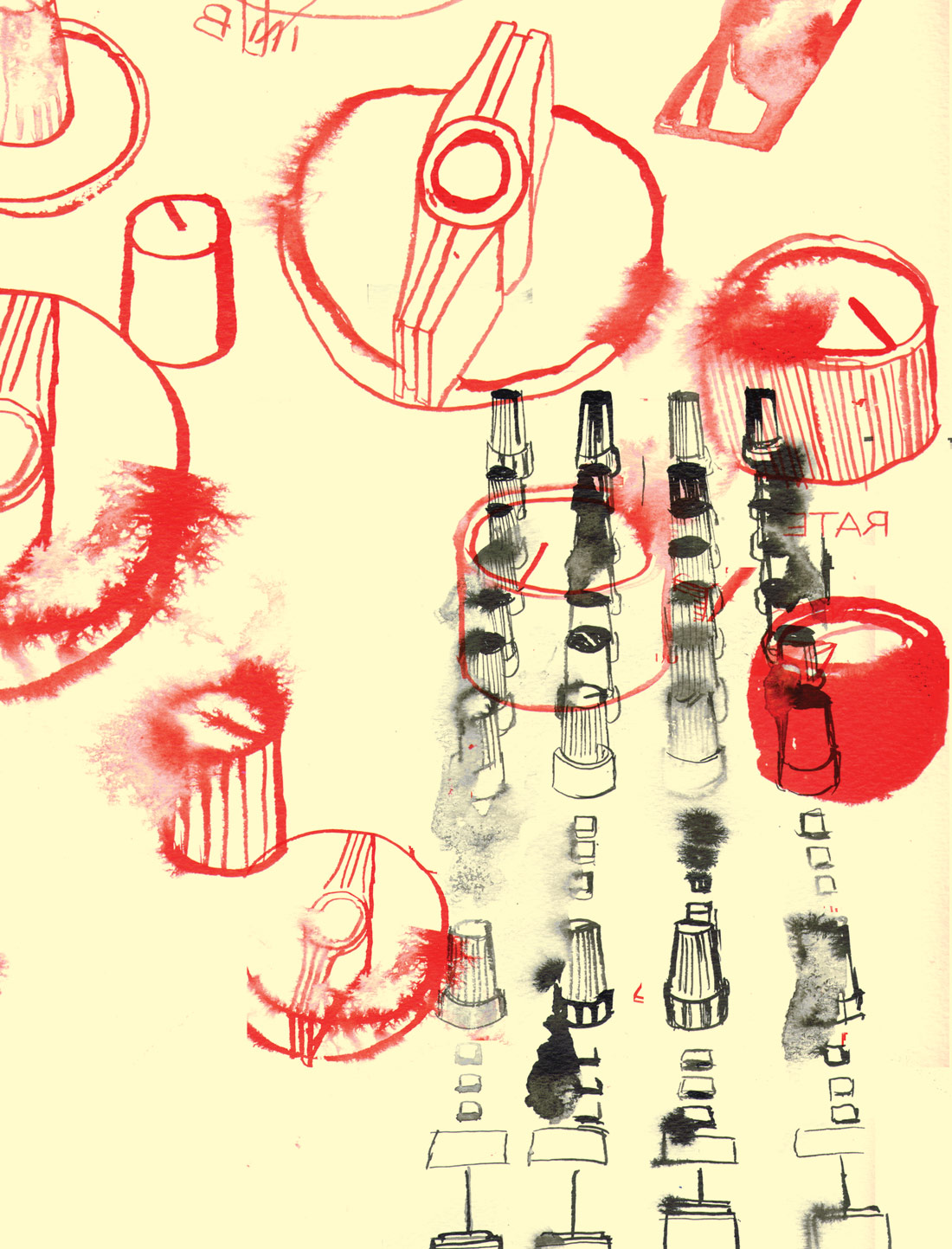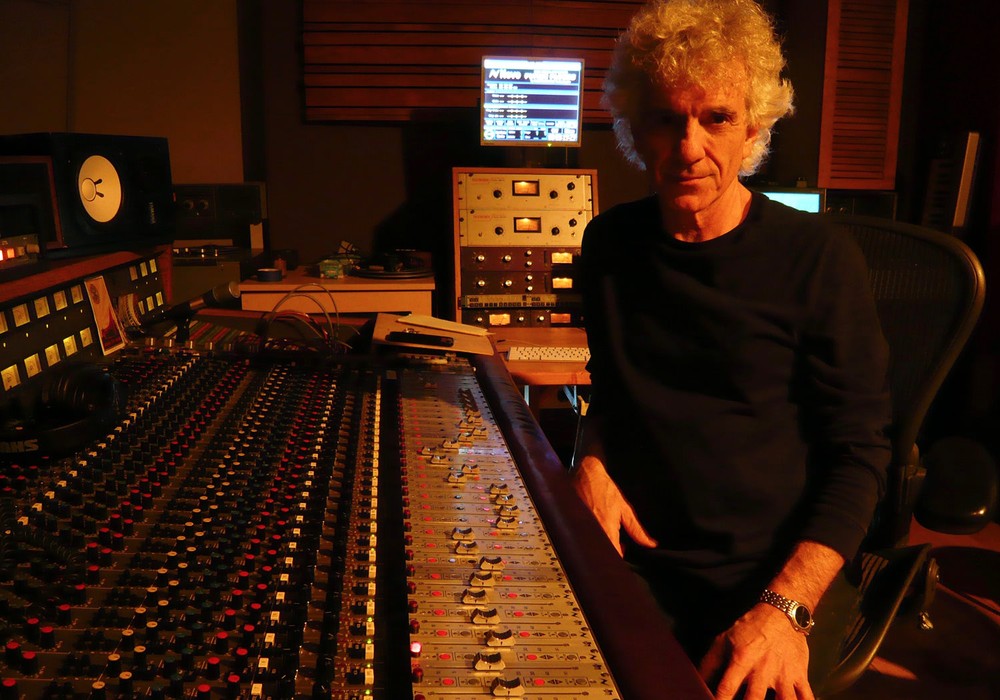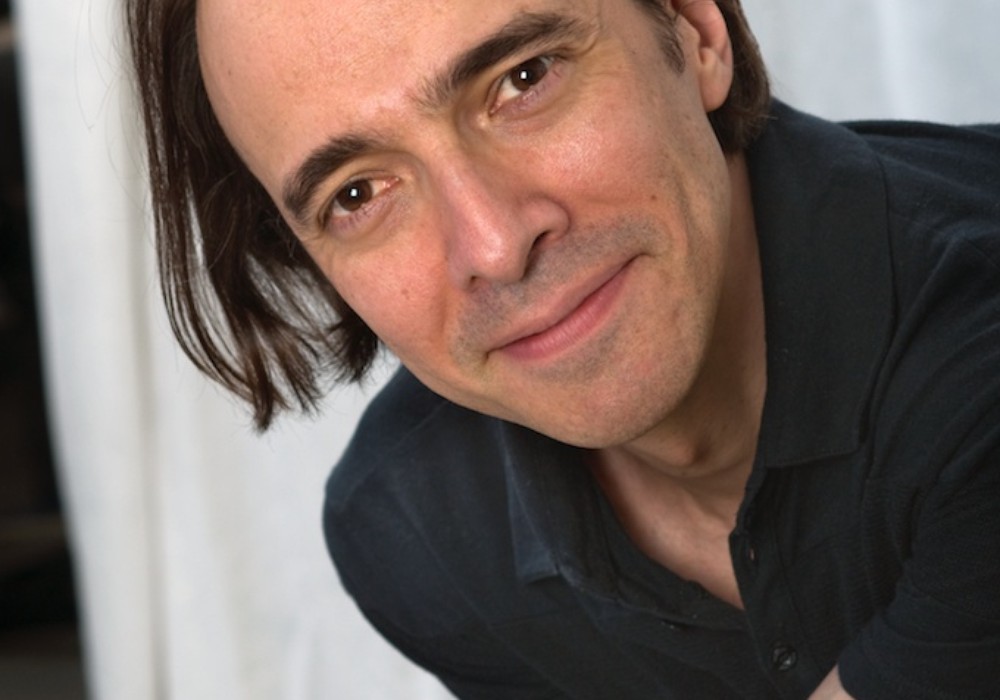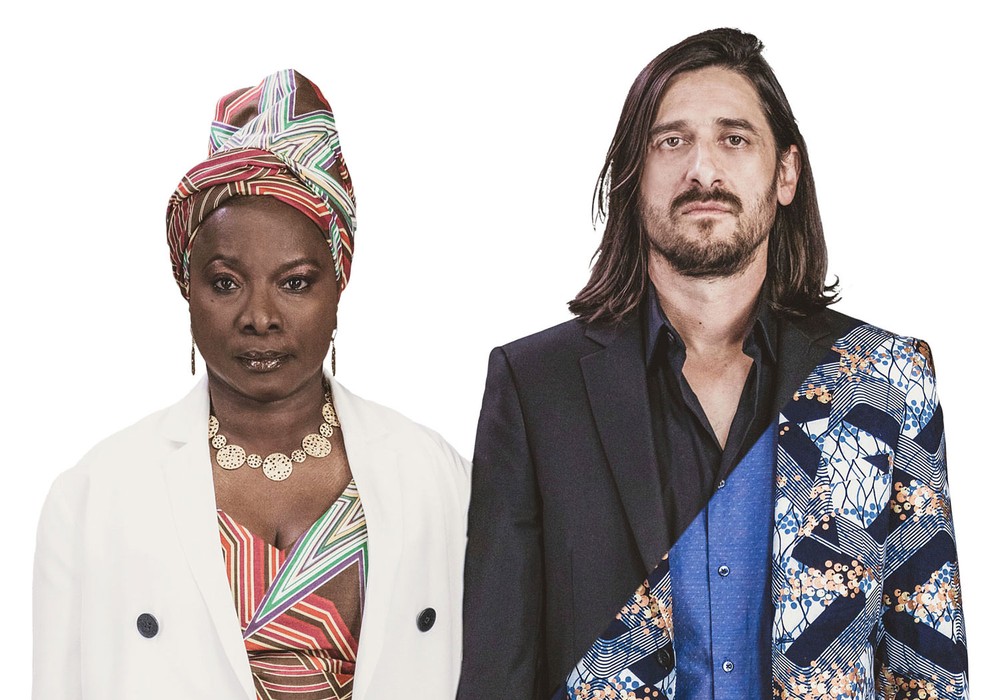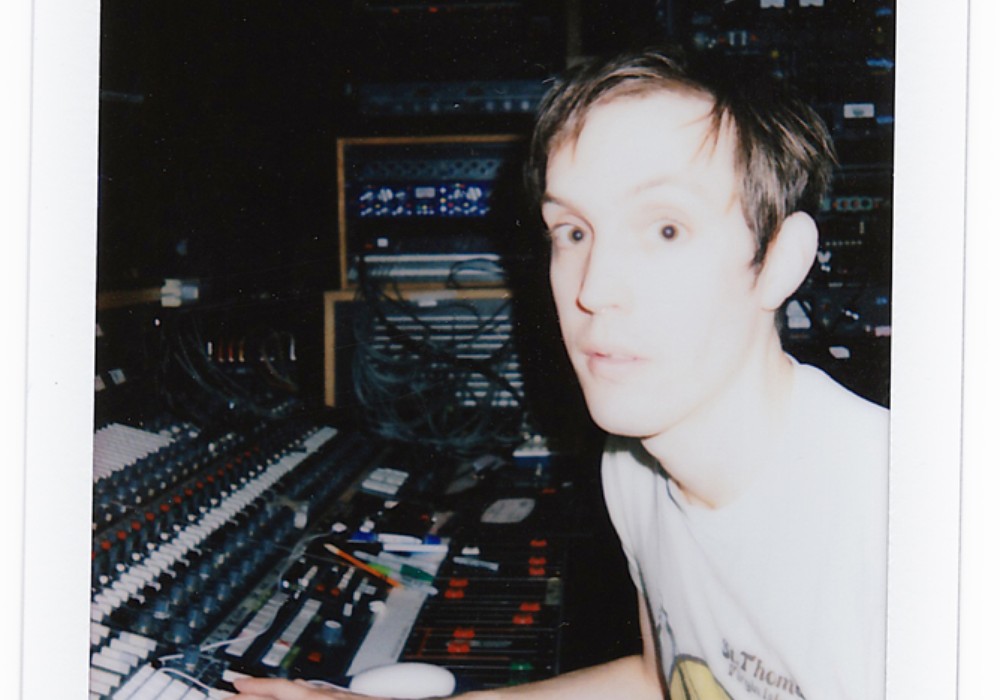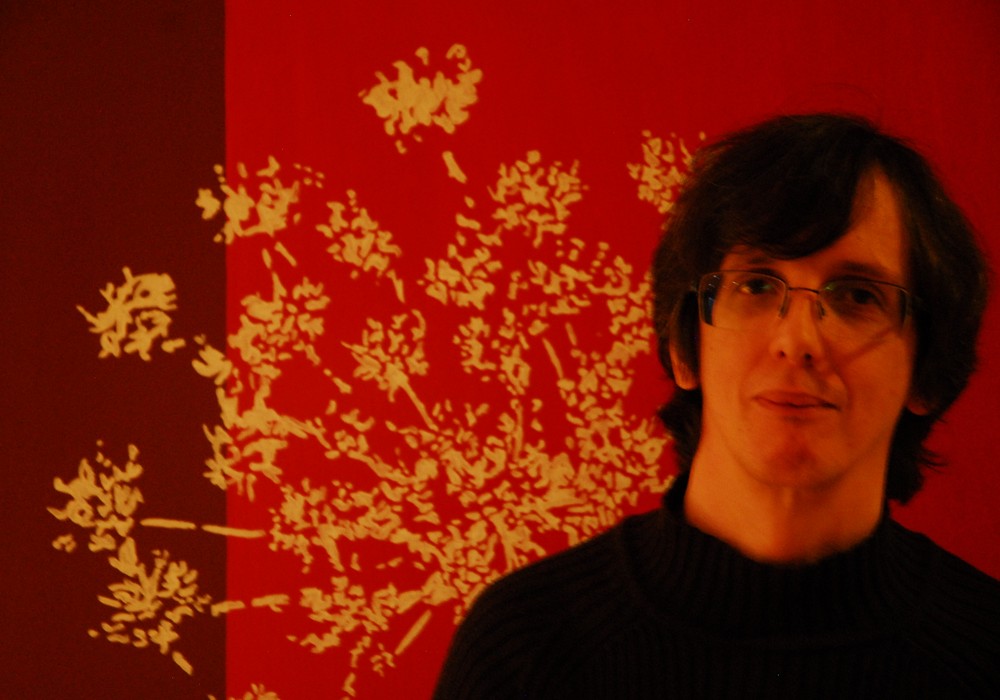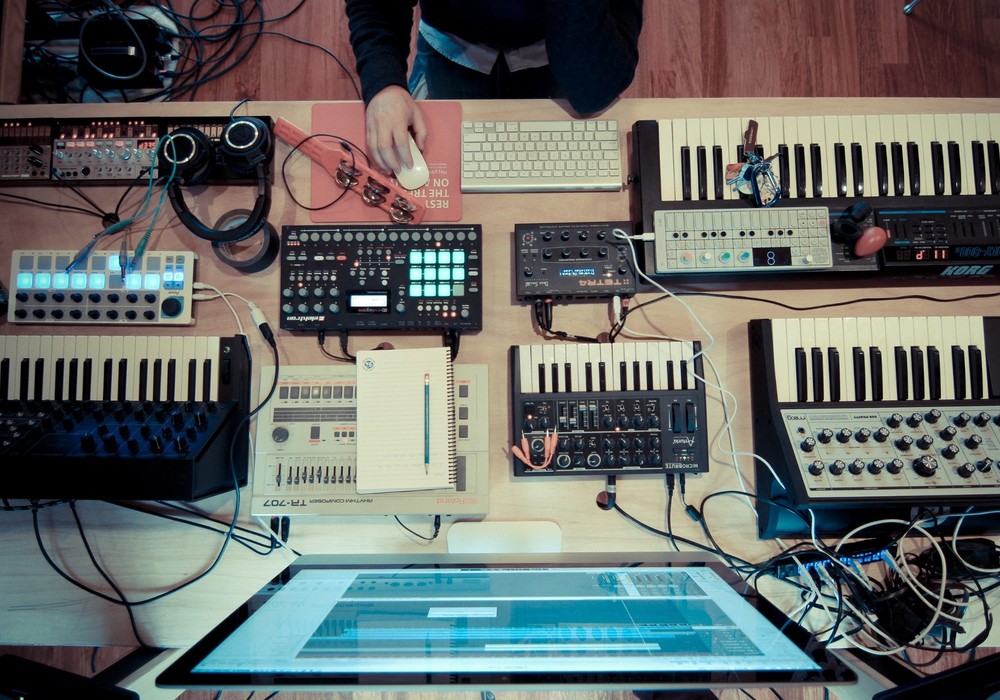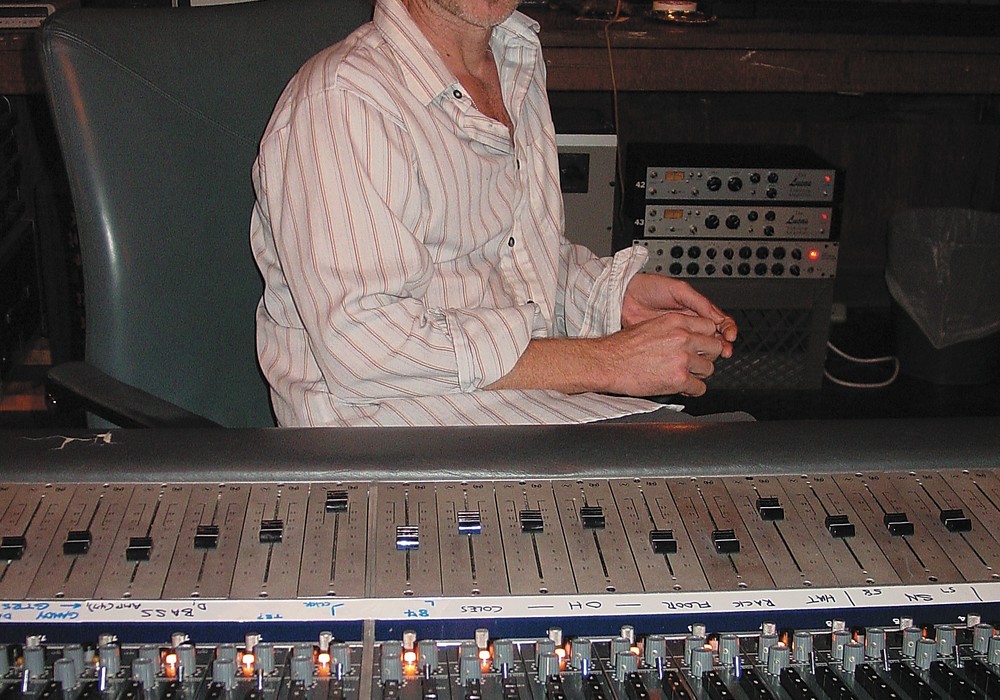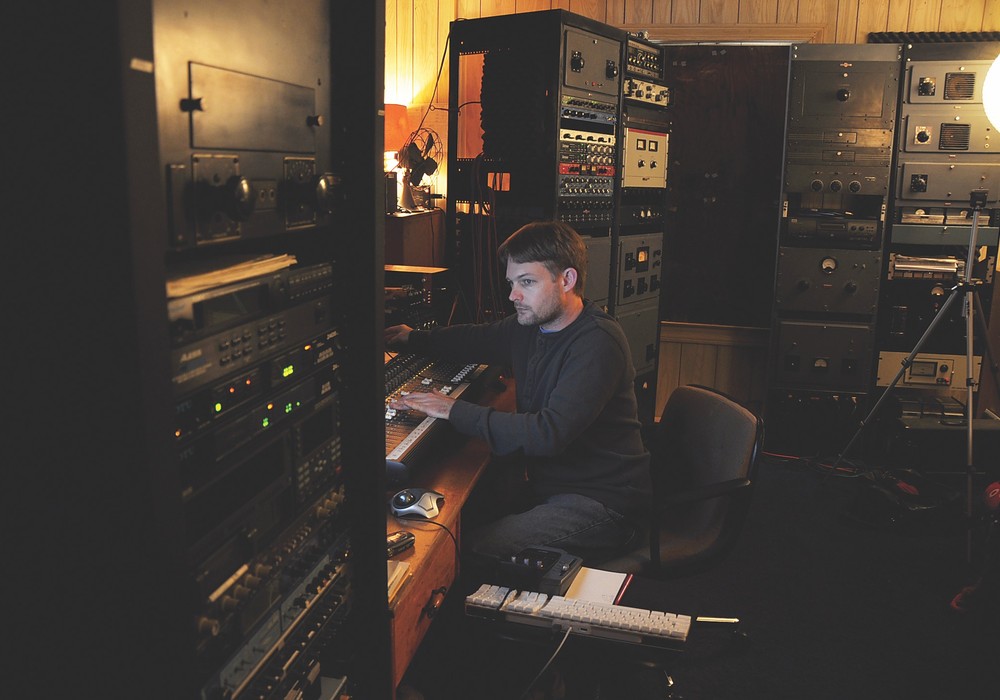[ image oz1 type=center ]
On a beautiful day in early March, Oz Fritz showed up at the door of New, Improved Recording — a studio I co-own in Oakland, California. He had been hired by multi- instrumentalist/singer Mark Growden to co- produce and engineer Mark's new record Saint Judas. I was pretty nervous. This was the guy that recorded and mixed Tom Waits' Mule Variations, Blood Money and Alice, worked with Bill Laswell over two decades, and has worked with Wanda Jackson, Iggy Pop and the Ramones. The man that showed up on my doorstep that day surprised me — Oz Fritz is as unassuming as they come despite all the great things he has accomplished, and I was immediately at ease talking with him and helping him get set up. He walked into the control room with only his trusty Peavey Kosmos Pro and a very practical attitude towards the task at hand, which was to capture the sound of Mark's sextet performing their songs live. Luckily he had time to sit down with me one morning for breakfast to talk about Meat Loaf live albums, quantum physics, magical battles and recording music that can't be recorded.
During the past several years I've had the good fortune of learning recording directly from producer/engineer Oz Fritz through phone conversations, assisting him on recording sessions and many, many emails. The main thing I've learned is that Oz's working techniques (and favorite recording equipment) are far less important than his way of being.
When you meet Oz he's kind, intense and always paying attention. He's also really funny, which I didn't expect. When you're with him he's fully present and awake. If you've never been near someone like this it can be unsettling. He does not pass time idly, doesn't chitchat and doesn't get bored. He smiles a lot, tells bad/good jokes, drinks tea nearly constantly and always has a book open in front of him.
Repeatedly, Oz encouraged me to be present and work in service of the music. He taught me that when mixing I should be aware that I'm creating one sound wave. He sees a mix not as a number of instruments playing simultaneously, but as one force working together. Oz also sees music as a sacred entity, and when working with it the speakers should be viewed as portals to another dimension, not just paper moving in boxes. You're communicating directly with music as a living being. It bothers Oz when the artist approves a mix, goes home and then the next day wants to change it. "The mix didn't change, they did!" He's present and knows the mix is correct in the moment. Most people are not so constantly aware, and so their perceptions change.
Before learning from Oz, I used to approach projects with an intellectual notion of how it was going to turn out or what philosophical message the mix would send. I assumed Oz worked this way and when I was struggling to decide between working in a realism/documentary style versus a more fantastic style, I asked which he used and received this response: "I've never thought about documentary style versus fantastic, and certainly have never consciously approached recording with one method over the other. I just try to do the best job I can, try not to impose too many expectations, but let the music be what it is. When mixing I try to work intuitively more than intellectually and look for that feeling of musicality beyond any concept."
Oz also has achieved that state some engineers miss — a balanced life. He has a family, he's a painter and writer, he's active in his community and says recording is "just one thing I do." r
What I've Learned From Oz
- Treat yourself, the music, everyone involved and the studio with respect and reverence like you would a temple.
- Train yourself to be fully present, awake and aware during sessions. Experiment and learn techniques that will wake you up if your mind drifts.
- Pay attention to your diet. Sluggish food means a sluggish mind.
- Use the absolute best recording equipment available.
• Be open-minded to what works and is effective, not just
what you think will work.
• Bring new things to the sessions to break up the patterns
and add variety, such as books, paintings, jokes, toys.
- Practice, practice, practice.
- Remember — you are making one sound wave.
Gear and Workflow
I took note of these while working with Oz:
- Try to work on outstanding, well-maintained equipment. Mix on an analog console — "It sounds better."
• Both 2" tape and Pro Tools have their appropriate uses. • Oz would spend a long while getting the whole mix
together and then write automation quickly in the final couple of passes, but stresses automation isn't necessary — "Two of my most celebrated records were done without automation."
- He likes to have a full day to mix a song, but I saw him mix three songs in a day once.
- Oz prefers analog effects to "get away from the linearity of digital." He used a Fulltone Tube Tape Echo and a couple of spring reverbs.
- Oz re-amps a lot. I saw this...
The rest of this article is only available with a Basic or Premium subscription, or by purchasing back issue #75. For an upcoming year's free subscription, and our current issue on PDF...
Or Learn More
